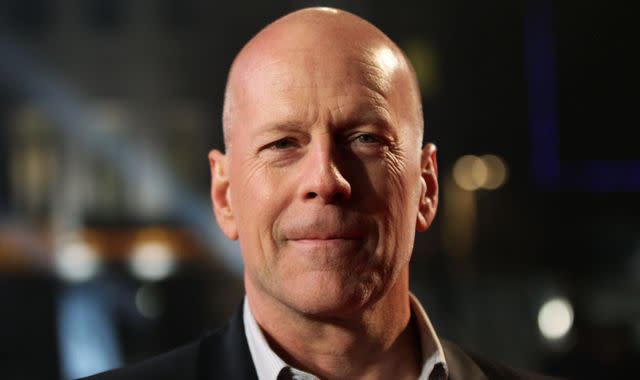Bruce Willis's wife asks paparazzi to 'keep your space' and not 'yell' at him after dementia diagnosis

Bruce Willis's wife has asked paparazzi to "keep your space" and not yell at the actor, who was recently diagnosed with frontotemporal dementia (FTD).
In an Instagram video, Emma Heming Willis said members of the press attempted to speak to her husband when he was getting coffee with friends.
"If you are someone that is looking after someone with dementia, you know how difficult and stressful it can be to get someone out into the world and just to navigate them safely, even just to get a cup of coffee," she said.
"In the spirit of raising awareness around dementia, it's clear that there's still a lot of education that needs to be put forth. So this one is going out to the photographers and the video people that are trying to get those exclusives of my husband out and about: Just keep your space."
She added: "I know this is your job, but maybe just keep your space. For the video people please don't be yelling at my husband, asking him how he's doing, or whatever, the woo-hooing and the yippee ki-yay's - just don't do it.
"Give him the space. Allow for our family or whoever's with him that day to be able to get him from point A to point B safely. That's my PSA."
In her Instagram post, Heming Willis said: "To other caregivers or dementia care specialists navigating this world…. Any tips or advice on how to get your loved ones out in the world safely? Please share below."
In March 2022, relatives said the Pulp Fiction star, 67, would be "stepping away" from acting following a diagnosis of aphasia, a condition affecting the brain which causes difficulty with language and speech.
Read more:
Bruce Willis: Hollywood star diagnosed with frontotemporal dementia, family says
What is frontotemporal dementia and how does it affect people?
In an update in February his family said the condition had progressed and he had been given a more specific diagnosis of frontotemporal dementia (FTD).
"As Bruce's condition advances, we hope that any media attention can be focused on shining a light on this disease that needs far more awareness and research," his family said.

 Yahoo News
Yahoo News 
